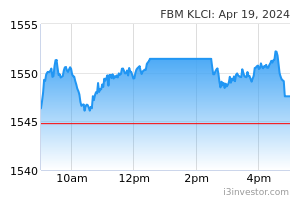Best M&A: Takeover of Lafarge cements YTL’s position

THE local cement industry is fragmented and rife with overcapacity and low utilisation of plants. According to the Cement and Concrete Association of Malaysia, the country has eight cement producers.
The situation is made worse by a slowdown in mega infrastructure projects, which has led to lower demand and seen cement companies booking losses.
Take Malayan Cement Bhd (formerly Lafarge Malaysia Bhd) and Tasek Corp Bhd, for example, which registered a net loss of RM132.65 million and RM22.98 million respectively for the nine-month period to Sept 30, 2019.
Thus, the recent acquisition of 51% equity interest in Malayan Cement by YTL Cement Bhd, a subsidiary of YTL Corp Bhd, was a welcome respite for the industry. It also earned recognition as the best mergers and acquisitions (M&A) deal of the year.
According to Maybank Investment Bank Bhd, the acquisition represents an opportunity for YTL Cement to bolster its position as a leading homegrown cement company, strengthen its ability to fulfil its regional growth aspirations and complement its existing core businesses.
YTL Cement is a leading international building materials company with over 60 years of experience in manufacturing cement, construction aggregates and concrete. It offers world-class quality products and end-to-end solutions to its customers.
Malayan Cement, meanwhile, is a prominent building materials leader listed on Bursa Malaysia with a market capitalisation of RM2.82 billion as at Aug 29, 2019.
On May 2, YTL Cement entered into a sales and purchase agreement with Associated International Cement Ltd for the acquisition of 433.34 million shares, or a 51% stake, in Malayan Cement for RM1.63 billion or RM3.75 per share.
Following the acquisition, YTL Cement was also required to extend the offer to the rest of the shareholders of Malayan Cement to buy the remaining 416.35 million shares at the same price.
The mandatory offer, which closed on June 13, saw 220.72 million shares accepted, with YTL Cement holding a 77% stake in Malayan Cement.
“The acquisition is expected to deliver operational efficiencies in logistics, distribution, and procurement; and cost synergies realised from economies of scale, and elimination of duplicated functions and corporate overheads; which would contribute positively to future earnings and cash flows of the enlarged YTL Cement group,” says Maybank IB.
Besides being the adviser for YTL Cement for the deal, Maybank IB was the lead arranger and book runner for YTL Cement’s bridging loan facility of RM1.84 billion. The facility has a tenure of two years.
YTL Cement and Malayan Cement together command a 60% share of domestic cement supply. The consolidation may result in price stability from more rational pricing strategies and capacity cuts, says Affin Hwang Capital in a March 3 note.
Another M&A deal that stood out in 2019 was oil and gas services provider Sapura Energy Bhd’s strategic partnership with Austria’s OMV Aktiengesellschaft.
On Nov 9, 2018, Sapura Energy announced that it had entered into a strategic partnership with OMV through SEB Upstream Sdn Bhd. The partnership will see OMV subscribing to 50% of SEB Upstream for US$625 million (RM2.6 billion), as well as repayment of an amount owed by Sapura Upstream and its subsidiaries to Sapura Energy of US$350 million in cash.
“The partnership with OMV offers new market opportunities for the exploration and production (E&P) business and increases Sapura Energy’s market reach for its services segment where OMV operates,” says Maybank Investment Bank.
Besides that, the partnership also enhances the sharing of technology and knowledge in growing the E&P business for Sapura Energy, as well as realising the value of its E&P assets while still being able to participate in its future growth, the bank says in its submission.
Maybank IB is the joint principal adviser for the deal, together with CIMB Investment Bank Bhd and RHB Investment Bank Bhd, while ABN Amro Bank is the international financial adviser.
Besides the partnership, Sapura Energy also raised RM4 billion via a rights issue. Post the rights issue and strategic partnership, Sapura Energy’s shareholders’ funds increased to RM15.8 billion from RM9.4 billion, while its total borrowings was reduced to RM9.8 billion from RM16.4 billion.
As a result, the group’s gearing ratio was pared to 0.62 times its shareholders’ funds, from 1.74 times as at Jan 31, 2018.
Another notable M&A transaction in 2019 was Can-One Bhd’s acquisition of 2.166 million shares in Kian Joo Can Factory Bhd (KJCF) for RM6.71 million or RM3.10 per share, which resulted in a mandatory general offer (MGO).
KJCF had been a target for acquisitions for at least the last six years.
According to AmInvestment Bank Bhd, the deal resolves the long-standing feud between the See family and Can-One, which had simmered for over a decade.
“Accordingly, Can-One is able to take full control of KJCF after several failed takeover exercises launched by several parties (Aspire Insight Sdn Bhd in November 2013 and Toyota Tsusho Corp in March 2014).
“The deal puts a stop to the above said feud and enables Can-One to focus to grow its business to enhance earnings to the group,” says the investment bank in its submission.
The acquisition of the shares from Tan Kim Seng was completed on Feb 14, and increased Can-One’s shareholding in KJCF to 33.39% from 32.9%. The MGO, which closed on April 30, saw Can-One holding 97.48% equity interest in KJCF and thus compulsorily acquire the remaining shares held by the dissenting shareholders.
The total deal cost Can-One RM1.53 billion.
According to AmInvestment Bank, Can-One’s share price increased from RM1.93 on Dec 11, 2018, being the last full trading day prior to the announcement of the deal, to RM3.21 on April 30, 2019, the closing date of the MGO. This surge represents a capital gain of 65.8%.
“The shareholders of KJCF were able to realise their investment for RM3.10 per share, being a premium of 52.7% over the last transacted price of KJCF’s shares of RM2.03,” it adds.
( 24,36 % )
( 39,38 % )
( 36,26 % )


